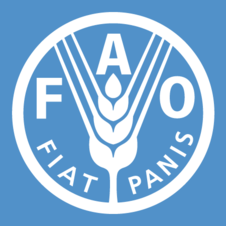SUGAR CATABOLISM IN BIFIDOBACTERIA
Resumen
En la actualidad, hay un gran interés en el estudio de las bacterias con actividad probiótica, especialmente en aquellos géneros que constituyen la flora interstinal, como los son los miembros del género Bifidobacterium. Sin embargo, para garantizar una administración acertada de bacterias probióticas, es necesario considerar los requisitos nutricionales y ambientales de estos microorganismos, para ejercer su efecto probiótico. En bifidobacterias como en otros géneros de la flora intestinal, el catabolismo y la capacidad para generar productos antagónicos, depende de la actividad metabólica, como del catabolismo complejo de los carbohidratos y la actividad de la fosfoketolosa, y de las rutas de fermentación de los monosacáridos. Esta es una revisión bibliográfica acerca del catabolismo de los carbohidratos complejos en bifidobacterias y sus rutas de fermentación en el intestino
Palabras claves: bifidobacteria, probiotico, catabolismo, carbohidratos, fosfoketolasa
bifidobacteria, probiotic, catabolism, carbohydrate, phosphoketolase
Descargas
Métricas
Citas
Delcenserie, V., N. Bechoux, T. Léonard, B. China and G. Daube 2004. Discrimination between Bifidobacteriumspecies from human and animal origin by PCR-restriction fragment length
polymorphism. J. Food. Prot. Vol. 67 No. 6: 1284-1288.
Leahy, S.C., D.G. Higgins, G.F. Fitzgerald and D. van Sinderen 2005. Getting better with bifidobacteria. J. Appl. Microbiol. Vol. 98: 1303-1315.
Kneifel, W., A. Rajal and K.D. Kulbe 2000. In vitro growth behaviour of probiotic bacteria in culture media with carbohydrates of prebiotic importance. Microb. Ecol. Health. Dis. Vol. 12: 27-34.
Scardovi, V. 1986. Genus Bifidobacterium. In Bergey’s Manual of Systematic Bacteriology [P.H.A. Sneath, N.S. Mair, M.E Sharpe, J.G. Holt] Ed Williams & Wilkins: 1418-1434.
Schell, M.A., M. Karmirantzou, B. Snel, D. Vilanova, B. Berger, G. Pessi, M.C. Zwahlen, F. Desiere, P. Bork, M. Delley, R.D. Pridmore, and F. Arigoni 2002. The genome sequence of Bifidobacterium longum reflects its adaptation to the human gastrointestinal tract. Proc. Natl. Acad. Sci U.S.A. Vol. 99 No. 22: 1422-1427.
Ballongue, J. 1998. Bifidobacteria and probiotic action. In Lactic acid bacteria, Microbiology and functional aspects [S. Salminem, A. von Wright] Ed Marcel Dekker: 519-587.
Beerens, H., F. Gavini and C. Neut 2000 Effect of exposure to air on 84 strains of bifidobacteria. Anaerobe. Vol. 6 No. 2: 65-67.
Corona, E.V. 2003 Evaluación probiótica de especies de Bifidobacterium en cerdos lactantes. Tesis de Maestría. Centro de Investigación en Alimentación y Desarrollo, A.C. Hermosillo, Sonora. México.
Petschow, B.W. and R.D. Talbott 1990. Growth promotion of Bifidobacterium species by whey and casein fractions from human and bovine milk. J. Clin. Microbiol. Vol. 28 No. 2: 287-292.
Poch, M. and A. Bezkorovainy 1988. Growth-enhancing supplements for various species of the genusBifidobacterium. J. Dairy. Sci. Vol. 71: 3214-3321.
Ballongue, J. Op cit.
Silvi, S., C.J. Rumney and I.R. Rowland 1996. An assessment of three selective media for bifidobacteria in faeces. J. Appl. Bacteriol. Vol. 81: 561-564.
Rada, V. and J. Petr 2000. A new selective medium for the isolation of glucose non-fermenting bifidobacteria from hen caeca. J. Microbiol. Methods. Vol.43: 127-132.
Salyers, A.A., S.E.H. West, J.R. Vercellotti and T.D. Wilkins 1977. Fermentation of mucins and plant polysaccharides by anaerobic bacteria from the human colon. Appl. Environ. Microbiol. Vol. 34 No. 5: 529-533.
Slováková, L., D. Dušková and M. Marounek 2002. Fermentation of pectin and glucose, and activity of pectindegrading enzymes in the rabbit caecal bacterium Bifidobacterium pseudolongum. Lett. Appl. Microbiol. Vol. 35: 126-130.
Schell, M.A., et al, Op. cit.
Kneifel, W., et al, Op. cit.
Marx, S.P., S. Winkler and W. Hartmeier 2000. Metabolization of b-(2,6)-linked fructose-oligosaccharides by different bifidobacteria. FEMS Microbiol. Lett. Vol. 182: 163-169.
Salyers, A.A., et al, Op. cit.
Hopkins, M.J., J.H. Cummings and G.T. Macfarlane 1998. Inter-species differences in maximum specific growth rates and cell yields of bifidobacteria cultured on oligosaccharides and other simple carbohydrate sources. J. Appl. Microbiol. Vol. 85: 381-386.
Perrin, S., M. Warchol, J.P. Grill and F. Schneider 2001. Fermentations of fructo-oligosaccharides and their components by Bifidobacterium infantis ATCC 15697 on batch culture in semi-synthetic medium. J. Appl. Microbiol. Vol. 90: 859-865.
Van der Meulen, R., L. Avonts and L. De Vuyst 2004. Short fractions of oligofructose are preferentially metabolized by Bifidobacterium animalis DN-173 010. Appl. Environ. Microbiol. Vol. 70 No. 4: 1923-1930.
Perrin, S., et al, Op. cit.
Van der Meulen, R., et al, Op. cit.
Schell, M.A., et al, Op. cit.
Ballongue, J. Op cit.
Wolin, M.J., Y. Zang, S. Bank, S. Yerry and T.L. Miller 1998. NMR detection of 13CH3 13COOH from 3-13Cglucose: a signature for Bifidobacterium fermentation in the intestinal tract. J. Nutr. Vol. 128: 91-96.
Ballongue, J. Op cit.
Idem
Van der Meulen, R., et al, Op. cit.
Slováková, L., et al, Op. cit.
Perrin, S., et al, Op. cit.
Crociani, F., A. Alessandrini, M.M. Mucci and B. Biavati 1994. Degradation of complex carbohydrates byBifidobacterium spp. Int. J. Food. Microbiol. Vol. 24: 199-210.
Rohr, L.M., M. Teuber and L. Meile 2002. Phosphoketolase, a neglected enzyme of microbial carbohydrate metabolism. Chimia. Vol. 56: 270-273.
Scardovi, V., B. Sgorbati and G. Zani 1971. Starch gel electrophoresis of fructose-6-phosphate phosphoketolase in the genus Bifidobacterium. J. Bacteriol. Vol. 106 No. 3: 1036-1039.
Sgorbati, B., G. Lenaz and F. Casalicchio 1976. Purification and properties of two fructose-6-phosphate phosphoketolases in Bifidobacterium. Antonie Van Leeuwenhoek. Vol. 42: 49-57.
Yin, X.H., J.R. Chambers, K. Barlow, A.S. Park and R. Wheatcroft 2005. The gene encoding xylulose-5- phosphate/fructose-6-phosphate phosphoketolase (xfp) is conserved among Bifidobacterium species within a more variable region of the genome and both are useful for strain identification. FEMS Microbiol. Lett. Vol. 246
No. 2: 251-257.
Meile, L., L.M. Rohr, T.A. Geissman, M. Herensperger and M. Teuber 2001 Characterization of the D-xylulose 5-phosphate/D-fructose 6-phosphate phosphoketolase gene (xfp) from Bifidobacterium lactis. J. Bacteriol. Vol. 183 No. 9: 2929-2963.
Fandi, K.G., H.M. Ghazali, A.M. Yazid an A. R. Raha 2001 Purification and N-terminal amino acid sequence of fructose-6-phosphate phosphoketolase from Bifidobacterium longum BB536. Lett Appl Microbiol. Vol. 32 No. 4: 235-239.
Sgorbati, B., et al, Op. cit.
Descargas
Publicado
Cómo citar
Número
Sección
Licencia
Los derechos del trabajo pertenecen al autor o autores, sin embargo, al enviarlo a publicación en la Revista Salud Pública y Nutrición de la Facultad de Salud Pública y Nutrición de la Universidad Autónoma de Nuevo León, le otorgan el derecho para su primera publicación en medio electrónico, y posiblemente, en medio impreso a la Revista Salud Pública y Nutrición. La licencia que se utiliza es la de atribución de Creative Commons , que permite a terceros utilizar lo publicado siempre que se mencione la autoría del trabajo y a la primera publicación que es en la Revista Salud Pública y Nutrición. Asimismo, el o los autores tendrán en cuenta que no estará permitido enviar la publicación a ninguna otra revista, sin importar el formato. Los autores estarán en posibilidad de realizar otros acuerdos contractuales independientes y adicionales para la distribución no exclusiva de la versión del artículo publicado en la Revista Salud Pública y Nutrición (p. ej., repositorio institucional o publicación en un libro) siempre que indiquen claramente que el trabajo se publicó por primera vez en la Revista Salud Pública, Revista de la Facultad de Salud Pública y Nutrición de la Universidad Autónoma de Nuevo León.










